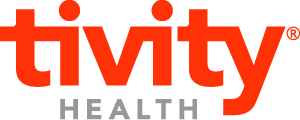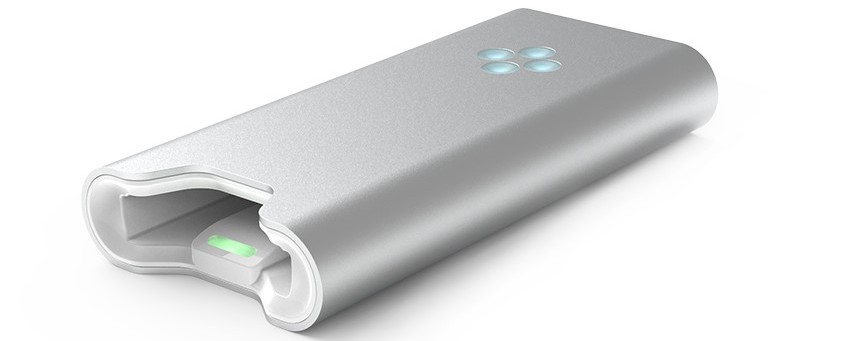 In a strange way, healthcare seems to be reverting back to a style that had gone out of fashion many years ago, with an increased amount of health taking place in the home. There are now around 12 million people who are now getting in-home care, from more than 33,000 providers, and last year the annual expenditures for home health care were projected to be over $72 billion.
In a strange way, healthcare seems to be reverting back to a style that had gone out of fashion many years ago, with an increased amount of health taking place in the home. There are now around 12 million people who are now getting in-home care, from more than 33,000 providers, and last year the annual expenditures for home health care were projected to be over $72 billion.
This is thanks, in large part, to technology and, more specifically, to connected in-home devices that can easily collect and send data to a physician in real-time. This allows patients to be monitored remotely, without constant trips to the doctor, and for physicians to do more timely interventions based on patterns picked up by AI and machine learning.
In July, Vator, HP and UCSF Health Hub will be holding an event centered around these devices, and how they are affecting the healthtech space. Every week until then we will be doing a roundup of some of the news around in-home devices and what some of the major tech companies are up to in this space.
Landmark Health launches telemedicine app
Landmark Health launched its telemedicine app to connect patients with their Landmark medical providers via smartphone. The app is available to Android users as of April 27 and will soon be available to iOS users. In response to the coronavirus, the company scaled up telemedicine to conduct more than 1,000 telemedicine visits daily, with a 260 percent increase in video visits from mid-March to mid-April.
Patients can download the Landmark Health app and go through a one-time-password (OTP) authentication registration. From there, they are brought to a home screen where they can call their local 24/7 Landmark clinical line, and view their upcoming Landmark appointments.
During a video call, the patient sees their provider on-screen, with a small corner video of themselves. They can flip the camera front/back if they need to show the provider a rash, swollen ankle, medication bottle, etc.
The Landmark provider can call a patient directly through the app as well. The patient sees the Landmark logo and words “Incoming Call” and taps “Accept” to connect to their provider. This simplicity is critical for an older adult – it removes the need for them to remember the appointment time, or find the dedicated link to connect with the provider. They simply answer a call.
“Seeing patients in their homes will always be our preferred method of care delivery,” Michael Le, MD, Landmark’s Co-founder and Chief Medical Officer, said in a statement. “Our patients are elderly and living with chronic conditions, so high-touch, hands-on care is required. But telemedicine allows us to stay connected with patients for a variety of less urgent needs and enhanced follow-up.”
 Medable and AliveCor come together to provide in-home ECG testing
Medable and AliveCor come together to provide in-home ECG testing
Decentralized clinical trial platform Medable announced a partnership with AliveCor, a provider of AI-based, personal ECG technology in order scale remote clinical trials by enabling in-home ECGs with AliveCor’s KardiaMobile6L, which will now become an integrated capability within the Medable platform.
Today, there are more than 50,000 interventional clinical trials underway globally. Together, Medable and AliveCor are aiming to accelerate development of therapies by expanding research and improving convenience of trials.
“AliveCor is the leader in patient-centric ECG. Their device has set the bar for convenient, medical-grade ECG technology, and now we will bring this capability into decentralized clinical trials,” Dr. Michelle Longmire, CEO and co-founder of Medable, said in a statement. “We could not be more excited about the partnership, as it will further our capabilities to enable comprehensive decentralized trials with collection of in-home ECGs and remote evaluation of ECG reports when necessary.”
 Tivity Health partners with DispatchHealth to deliver healthy meals
Tivity Health partners with DispatchHealth to deliver healthy meals
Tivity Health, provider of nutrition, fitness and social engagement solutions, partnered with in-home healthcare company DispatchHealth to deliver healthy meals for DispatchHealth patients.
DispatchHealth clinicians will perform in-person assessments of each patient’s nutritional support needs. In coordination with DispatchHealth, Tivity Health will deliver customized Wisely Well meals directly to the patient’s home within two business days, for up to five days of meals per shipment. Wisely Well pre-packaged meal options are developed by nutritionists and are specially formulated to meet older adults’ dietary needs. Theyare designed to support those recovering after a hospitalization, living with chronic conditions or experiencing food insecurity.
DispatchHealth currently serves 19 markets across 12 states and is projected to service more than 165,000 patients in 2020. The new service will initially be offered in the Denver metro area for patients returning home after a hospitalization, those that are hospitalized in their home or for the most vulnerable patients with food insecurity.
“Healthy nutrition is key to supporting individuals who are discharged from the hospital and returning to their homes to ensure a full recovery and prevent readmission,” Robert J. Greczyn, Jr., Interim Chief Executive Officer of Tivity Health, said in a state,ent. “We’re very proud to be partnering with DispatchHealth, who is providing the kind of personalized care that the most vulnerable patients need to overcome the kinds of serious health issues that also drive up healthcare costs. We’re excited to support their efforts and improve the health of patients in need of quality meals and nutritional support.”
 Smart ring company Motiv gets acquired by Proxy
Smart ring company Motiv gets acquired by Proxy
Proxy, a company that provides its users with a digital identity, acquired smart ring maker Motiv for an undisclosed amount. Under the terms of the agreement, Proxy has acquired Motiv’s entire technology portfolio including patents and will retain the majority of Motiv’s employees. Motiv’s founders and CEO will stay on in an advisory capacity.
Proxy’s platform, which emits digital identity signals from smartphones to allow for touchless access to any space or device, including doors, elevators and turnstiles, is used by companies that include Doordash, Dropbox and Accenture. The company plans to use the Motiv smart ring as a replacement for a smartphone, as it is being worn constantly. In the past two years, Motiv shipped approximately 80,000 of its rings to customers worldwide.
“Wearables have yet to reach their full potential. They have been relegated to fitness and sleep tracking, when there are more profound purposes we should be aiming for,” Denis Mars, co-founder and CEO of Proxy, said in a statement. “The existing wearable space is analogous to the flip phone days of the smartphone world. With the acquisition of Motiv, Proxy is igniting a paradigm shift in how people use wearables to interface with the physical world, so they can do and experience things they never have before.”

Alveo partners with Johnson & Johnson to develop in-home COVID-19 testing
Alveo Technologies, which is developing technologies that allow for real-time, at-home detection of infectious diseases, entered into a research collaboration with Janssen Pharmaceuticals, a subsidiary of Johnson & Johnson, which will help bring its be.well platform to market.
Janssen will provide financial support as well as technical and regulatory counsel to Alveo.
The be.well platform comes with one analyzer, five testing cartridges, and seven nasal swabs. Patients simple take the swab and stick it in their nostril to get a mucus sample, they they put the that sample into a disposable cartridge which is inserted into the analyzer. That then communicates wirelessly with any mobile phone which will have Alevo’s real-time healthcare app. Patients can also fill out a questionnaire with personal health information, including their symptoms. Depending on what disease they have, the patient will be guided toward specific treatments or interventions.
The company has not yet undergone clinical trials for any of these tests at the moment, but the plan is to start trials for the flu and RSV in September, and then to submit its application to the FDA in December so it can approval to start selling the kits next next year. In terms of COVID-19, the company has applied for Emergency Use Authorization (EUA) from the FDA, and it plans to start those human trials in May.
“Johnson & Johnson sees a lot of technology, they see a lot of startup companies, and that we are selected to collaborate, to work with them, means that we went through a vetting process that really validates our technology, our culture, our vision,” Ron Chiarello, PhD, Founder, CEO and Chairman of the Board of Alveo, told VatorNews.
“That validation does give us added confidence. That is a big boost for us, and the internal and external validation is really great.”


















